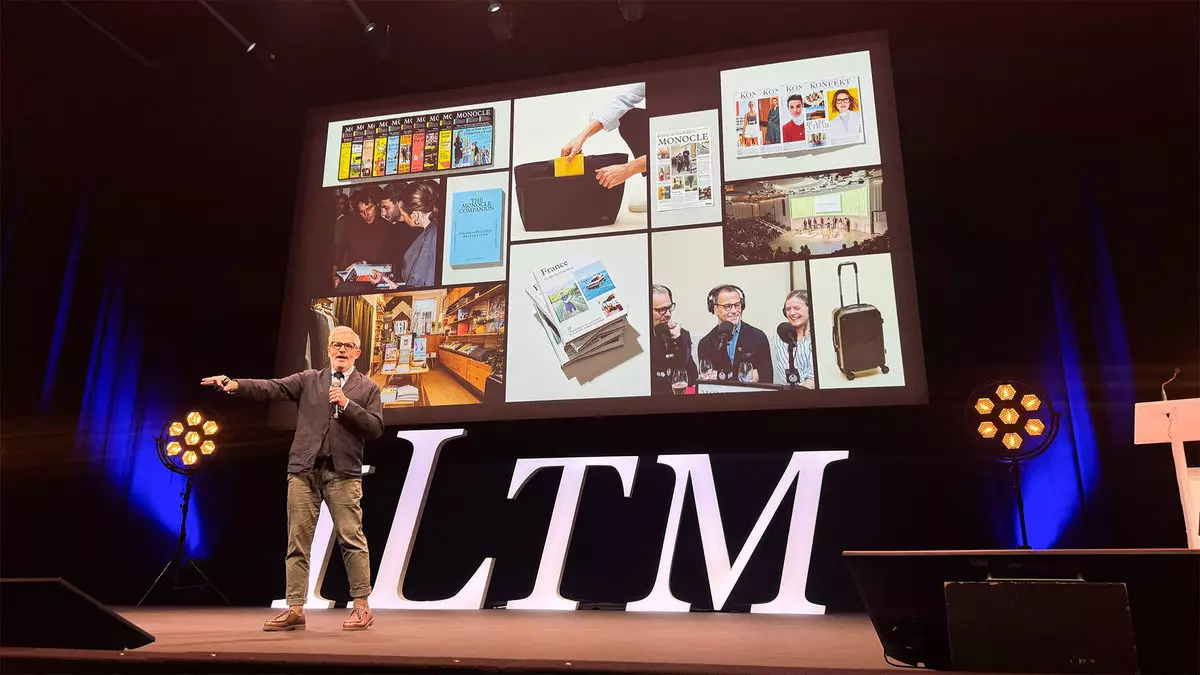In an age where digital conveniences reign supreme, the hospitality industry finds itself at a crossroads. Guests increasingly navigate their experiences through a blend of expectation based on tradition and the innovations sparked by a global pandemic. Tyler Brule, the editorial director of Monocle, raised significant points during his presentation at the International Luxury Travel Market (ILTM) in Cannes, advocating for a reevaluation of some recent trends that have permeated the luxury hotel experience. His candid critiques serve as a litmus test for how this industry can strive for authenticity and genuine hospitality.
With the overwhelming proliferation of QR codes, the luxury dining experience has undergone a drastic transformation. While once diners could revel in the ambiance created by beautifully designed menus made of high-quality materials, this tactile element has been replaced by a sterile screen. Brule’s passionate appeal for traditional menus reestablishes an essential point: hospitality is as much about the details as it is about function. Guests crave the sensory feeling of flipping through a leather-bound menu as they consider their meal choices.
The beauty of a restaurant environment lies not only in its cuisine but also in its ambiance, which is dulled when digital screens dominate. By reverting back to physical menus, establishments can restore a sense of intimacy, charm, and genuine hospitality that modern tech-driven practices threaten to strip away.
Modern hotel lobbies are grappling with an identity crisis, evolving into co-working spaces while sacrificing their primary role as communal gathering points. Brule poignantly referenced the nostalgia of the classic phone booth, suggesting that a reintroduction of private spaces can enhance guest comfort and satisfaction. The melding of work and leisure in shared environments often leads to disturbances and an erosion of the luxury atmosphere that high-end hotels aim to provide.
As more guests take their professional lives on the road, the hospitality industry must redefine public spaces. Hotels need to curate environments that distinguish between work and leisure, ensuring that all guests can enjoy genuine moments of relaxation without the intrusion of business calls and digital distractions.
While the hospitality industry has embraced technological advancements like digital check-in, Brule argues for balance. High-end customers expect ease and comfort, but fumbling with an unintuitive tablet can quickly shift the mood from serene to stressful. The overreliance on technology detracts from the warmth of welcome typically associated with luxury establishments. A personal greeting from a receptionist, complemented by an old-fashioned key card or a classic check-in process, might foster a more welcoming atmosphere.
Guests are looking for simplicity, not more screens. Streamlining technology while preserving personal human interaction is crucial for enhancing guest experiences. The hospitality industry needs to be wary of losing the charm of personal touch amid the allure of digital efficiency.
When it comes to the staff, Brule’s observations resonate on a broader scale. The blurred lines between guests and employees have muddled the luxury experience. The lack of distinct uniforms can create confusion and detracts from the professional atmosphere that upscale hotels strive for. Employees dressed in indistinguishable designer attire can leave guests guessing about who can provide assistance and who is simply enjoying their stay.
To reinvigorate the luxury experience, hotels should invest in unique, professionally designed uniforms that exude personality while offering staff a clear identity. Well-crafted uniforms not only signal authority but also embody the brand’s ethos and commitment to professionalism, which is paramount in any luxury offering.
Finally, Brule shed light on an increasingly frustrating trend: the early closing times of hotel bars, particularly in regions like Asia. With the vibrant nightlife culture so integral to the allure of cities, the current trend of restricting evening socialization contradicts the expectations of global travelers. The luxury hotel should be a sanctuary where guests can unwind, socialize, and revel in life beyond the clock.
Elevating nightlife experiences by extending bar hours can recapture the spirited essence of hospitality that luxury travelers seek—a departure from the notion that cradling guests into early slumber is the key to satisfaction.
Brule’s observations can encourage the hospitality sector to reflect on these pressing issues. The luxury experience hinges on genuine engagement, authentic encounters, and continued dedication to high-quality service that resonates on a personal level. As the industry maneuvers through post-pandemic recovery, embracing these suggestions will be critical to restoring the revered status of luxury hospitality. It is a clarion call for innovation during a time when guests are increasingly craving real experiences over automated conveniences. The industry’s future lies at the intersection of tradition and modernity, where a return to authenticity will invite guests back to the embrace of luxurious living.


Leave a Reply